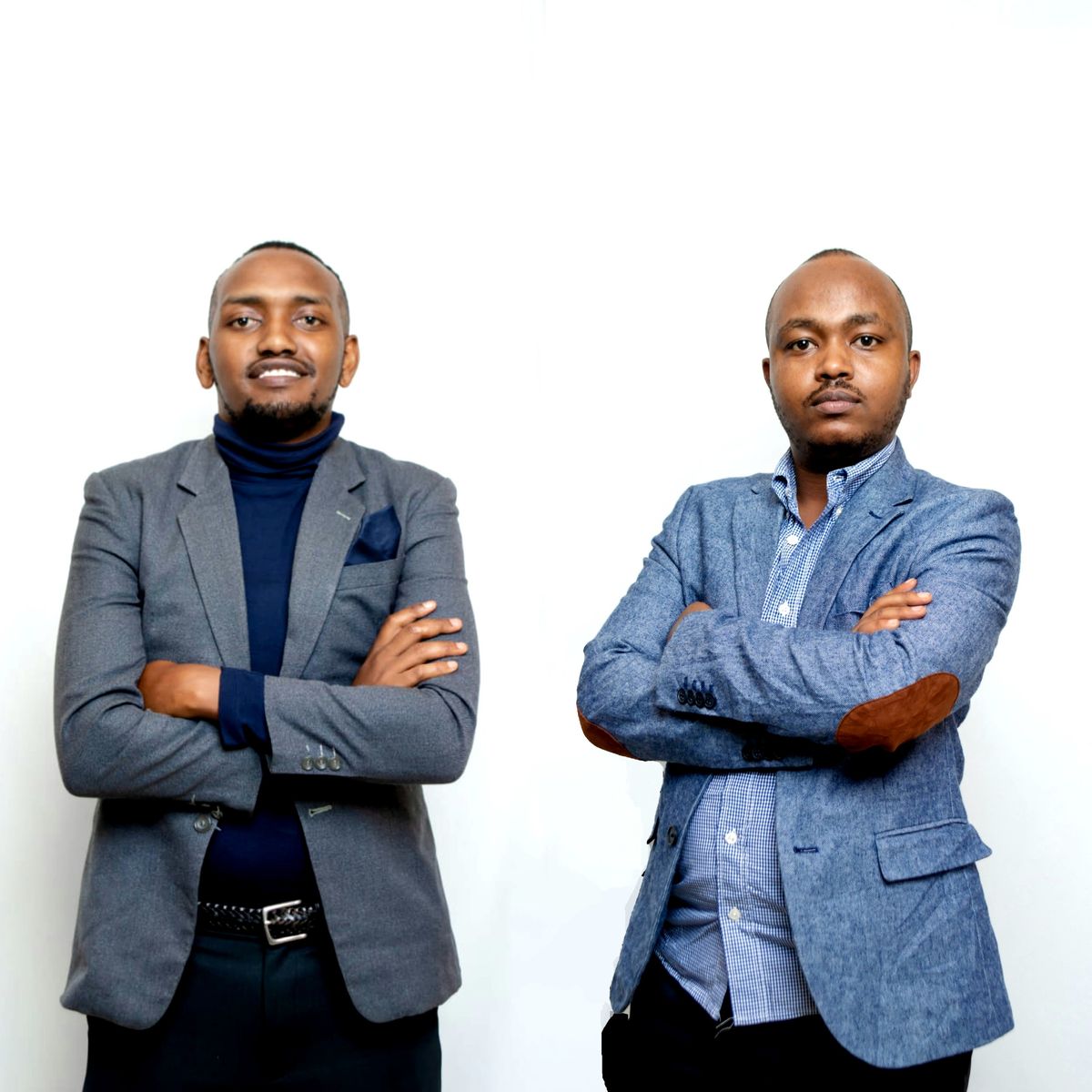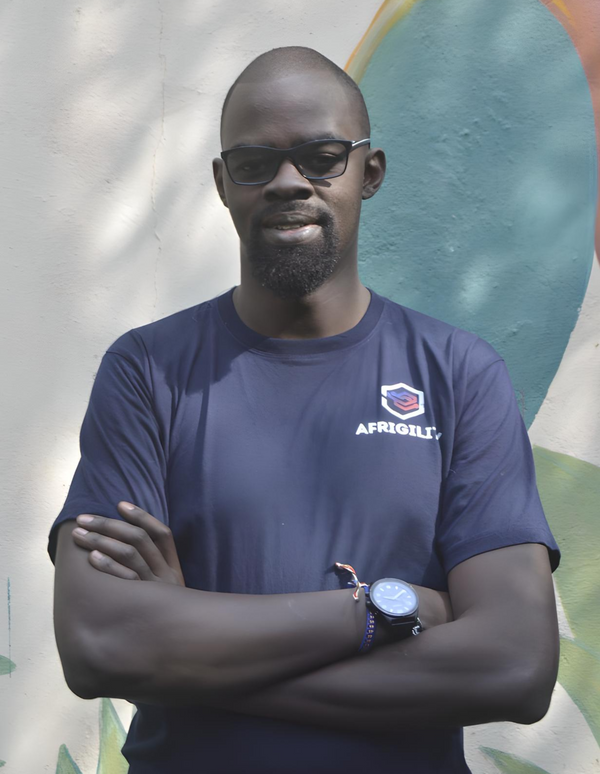Nairobi, Kenya
Charge customers less, pay employees more, and still turn a tidy profit — everybody wins. That's the Impact Outsourcing business model at a glance. It sounds so simple. But it's so rare because it depends on company leadership being happy with enough rather than being driven by unrestrained profit. But enough is plenty for the founding team behind the Nairobi-born-and-based social enterprise.
Victor Karagu and Kelvin Njuguna form two of the five-person founding team at Impact Outsourcing, along with Daniel Kioko, Evans Waweru, and Gidraph Makumi. The company is building a solid reputation in outsourced Data Annotation and Labeling. Companies working with AI and Machine Learning in a wide range of industries — from Health to AgriTech to Geospatial — come to Impact Outsourcing to ensure that the data their models and algorithms rely so heavily on are accurate.
In a bid to bring digital employment opportunities to the population, Impact Outsourcing recruits young local Kenyan talent — predominantly women and often from disadvantaged backgrounds — and provides free training for the role. A cynic might view this as a way to cut costs, but here's the kicker: These employees are paid around double the going rate. The fact they gain solid digital skills also improves their job prospects in an increasingly tech-driven economy (Kenya is one of Africa's leading countries in terms of access to digital infrastructure).
"We charge a much lower rate than the international companies who source labor from Africa. They charge around $8-10 per hour, yet they pay their employees half of that for the full day of work," Victor explains.
Kelvin elaborates, "They might make $80 to $100 daily for one agent's work while paying that person only $5. On the other hand, we charge customers much less — $3 per hour — and pay our people double what the international companies do. Then, being a local company, we still make a good profit."
The Business Process Outsourcing (BPO) niche is not a new area for the co-founders. After working together in senior roles with two other Kenya-based BPOs, both offering data annotation and labeling, the quintet fancied their chances at going their own way and launched Impact Outsourcing in 2019.
The prospect of having a competitive price advantage while still helping those in need was too good an avenue to not explore. "That's the whole point of us being a social enterprise — we really want the employee to reap the benefits of their hard labor, not just the company."
There's something concise and straightforward about Victor and Kelvin's outlook. While thought leaders and commentators are falling over themselves to join the discourse about AI's influence and impact on the human workforce, here are two savvy business people who know that behind the curtain, humans still play a significant role, one that can lift people out of poverty and into digitally-driven professions.
Good AI needs good humans
The data annotation and labeling market is exploding as the need to improve Machine Learning models and train AI algorithms increases. From an estimated value of $0.8 billion in 2022, it's expected to reach more than $3.5 billion by 2027 — a compound annual growth rate of more than 33%.
The vast datasets needed to build sophisticated ML models must all be accurately tagged, labeled, and annotated. And thus far, humans are still considered the best fit for the job. It's not the most glamorous work, but under Impact Outsourcing's watch, it's an upgrade on unemployment — and comes with a livable wage.
Given the demand to outsource this work internationally and comparatively cheaply, it's no surprise that African and Asia Pacific countries are targeted. This is where Kenya holds an advantage. According to Karagu, "The global perception of Kenya is really good, and we have the human capital. When you compare our talent and English skills to the rest of Africa, they're very good."
Kenya's potential power isn't lost on the world's biggest tech names either, "Google's African offices are here in Kenya, for example," Karagu points out. "These huge tech companies are making sure they have a presence here. The way they see it, if they can tap into Kenya, they have the best chance of tapping into the rest of Africa."
As for the companies they work with, Karagu and Njuguna aren't at liberty to confirm who they are. Still, they cross several industries. "We're working with an app maker that lets people try on clothes virtually before buying and a fitness app where users can check and correct their posture and form during exercise," explains Njuguna. "We also work with an infrastructure repair company which scans the likes of runways and seaports for corrosion."
While they come from various industries, Impact Outsourcing clients share one thing in common — an emphasis on Ethical AI. "This simply means that the data you use to build your model has been gathered and curated ethically, without using slave labor," Njuguna explains. "This also serves to our advantage while winning clients. They see how we operate as a social enterprise. It's a real plus because they want to be able to show that their products are built ethically from the ground up and that they're helping disadvantaged people along the way."
An improving business ecosystem
Kenya, as a whole, is in a paradoxical situation. It's Sub-Saharan Africa's fourth largest economy, big tech is there, and the standard of education and talent is high — university enrolment is growing by just under 10% every year, according to the Ministry of Education. The Washington Post even ran a story in June 2023 titled Kenya Is Poised to Become the 'Singapore of Africa.'
Yet, for all the hope and potential, the country has a long way to go. Poverty, inequality, and unemployment — particularly youth unemployment — are significant obstacles to overcome. The 2022 elected government, led by new President William Ruto, has a massive task on its hands. Around 75% of Kenya's entire population is under 30 years old, and more than half of Kenyans without jobs are between 20 and 30. This Youth Bulge is far from just a Kenyan phenomenon, with India, China, and the USA all in the top 5 countries with the highest population of young people. What this means to Kenya, however, is that there's pressure to create around a million jobs per year to keep up.
This great necessity has led to much more support for the private sector and, in Impact Outsourcing's case, the social enterprise sector. According to Karagu, the present is a fruitful time to be an entrepreneur in Kenya. "So we have some advantages here in Kenya over other African countries. We already mentioned the high standard of English, but also great internet, a growing digital and online industry, and so on. But overall, the support we're receiving from the government is great. They have an agenda of creating a million jobs, and companies like ours help them."
Njuguna picks up the thread, "The government is really waking up to the potential of digitally-skilled jobs, and as a result, they're very understanding of our needs. For example, startup companies like ours can get tax breaks because they really want us to grow and succeed." (Njuguna refers to a new tax law that took effect in July 2023. To boost the startup ecosystem and attract investment, startups are exempt from paying tax on unrealized gains.)
Looking to the future
Having already proven a profitable model at this early stage, the leadership behind Impact Outsourcing is now looking to the next phase of growth. "In the short term, we want to increase our team," Njuguna says. "The internationally owned BPOs in Kenya have over 200 employees, and we have around 30 at present. So we want to increase this."
This depends on winning even more customers — a process that Impact Outsourcing takes a simple but effective approach. "It's mostly cold calls and emails. We know the industry, so it's just approaching companies and laying out what value working with us can bring them."
"But in the long term, we want to create our own AI models and sell them. To build out Software Engineering and Machine Learning teams and sell our products, rather than simply training other businesses' AI models."
Perhaps the biggest milestone for a growing company is the question of investment. For some, it's the perfect tonic for rapid growth, while it quickly becomes a burden for others. Karagu believes that Impact Outsourcing, considering its profit model and social impact, has the potential to attract game-changing funding. "It's something we're looking into. We're in talks with the right people and are getting our company structured [to ensure] we can attract the right venture capital."
That said, they're under no tremendous pressure to win funding and are in no rush unless the right investors come along. "We're just mostly concentrating on continuing to find good business. That's the most important thing for any investor — something tangible rather than a vision alone. That's how the team and the company as a whole will grow."
The critical question about Impact Outsourcing's potential for future success is, Will your services continue to be necessary? Will there continue to be a need for humans to annotate and label data for AI?
"Sure, maybe someday the computer will be able to do a lot of this work itself, and we might have to reduce our team. But it won't wipe human input completely," Njuguna points out. "That's part of why we want to expand into creating AI models ourselves. But even if that is the case [less human input being necessary], there will always be a need for people in some regard."
There may come a time when the need for human input in AI and Machine Learning goes down, but so long as the demand remains, the people behind Impact Outsourcing are determined to continue uplifting the Kenyan population.









